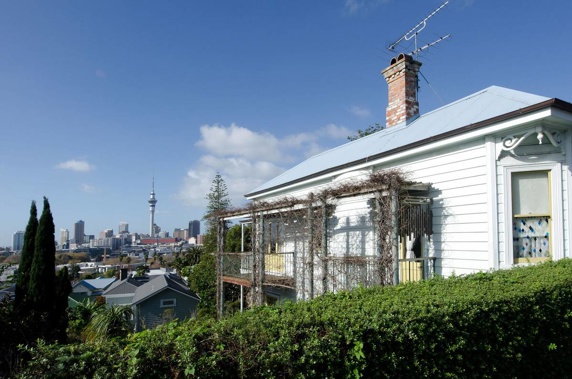COMMENT:
If Sydney's property market slumps, does it hold that Auckland must follow?
I haven't written much about the housing market this year. That's primarily because it has been pretty static – in Auckland at least.
The heat came out of the Auckland market about 18 months ago and it has tracked sideways ever since.
Compared to the hype and panic of the overheated market - through 2014, 2015 and the first half of 2016 - it has been a great relief, although not nearly as newsworthy.
But the past couple of weeks have seen an important shift in tone which has been recognised by the Reserve Bank.
It seems worth taking stock, stepping back and looking at just how far we've come since the peak and also where the experts think we might be going.
Commentary on the Sydney market – which is now off by five per cent – has sparked some speculation and concern that Auckland may follow.
Latest REINZ House Price Index numbers for July did show a monthly fall of 0.1 per cent - for Auckland, the fifth monthly fall in a row.
The annual rate of growth in Auckland is 1.6 per cent but the chance of a year-on-year decline flowing through the data now looks likely.
There are gloomier numbers you can pick, if you look at median prices for example, but these are being pushed downwards by the growing number of new apartments and units in central Auckland.
So economists prefer the REINZ Index as a measure of market heat.
It's subdued but hardly apocalyptic stuff.
In fact, if you consider where we were two years ago - with even the CEOs of the major banks warning of a possible crash - then you'd have to say things have calmed quite nicely.
There are – as Westpac chief economist Dominick Stephens points out in his analysis – two powerful competing forces at play in our market.
The Coalition Government has come in to power on promises to cool the market and make homes more affordable.
It is embarking on an ambitious state-backed building programme to boost supply and has introduced new polices to reduce demand – beefing up the bright line test for taxing property speculators and this week introducing a ban on foreign buyers of residential homes.
On the other side is Reserve Bank policy, which now leans in the other direction.
The Bank – primarily with an eye on the slowdown in GDP growth – said in its last statement the Official Cash Rate (OCR) is likely to stay on hold for longer than previously forecast.
If you've been following the news on interest rates, you'll know that for some time the conventional wisdom has been that they are overdue to start rising.
But I've remained sceptical about that because we've already seen the process delayed twice in the past five years.
It looks like we now face another delay and that's good news for mortgage holders. It is already putting downward pressure on short-term bank rates.
In other words, if you are due to fix your mortgage any time in the next six months or so, you are probably going to get another chance to lock in at a very cheap rate.
That will be a shot in the arm for the housing market.
It could "cause a drop in two-year fixed mortgage rates of around a fifth of a percentage point over the coming few months", Stephens says.
"A drop in mortgage rates of that magnitude, if it comes to pass, will have a powerful effect on the housing market."
On top of that the Reserve Bank has some tough lending restrictions in place - which it has discretion to loosen up if things head further south.
That puts us in quite a different place to Australia, where rates are still on track to rise sooner than later.
So while Westpac economists see most of the market staying flat for the rest of the year - and Auckland as likely to drift into negative territory - they now expect a "sharp but short lived" revival in 2019.
There is a sting in the tail of the Westpac analysis, though.
They just don't predict a return to sustained price growth for several years. Their long-term outlook remains negative.
Rates will eventually have to rise and eventually government building plans will drive supply. They're picking a 3 per cent fall in prices for 2020.
So where does that leave us?
Well, as with many other aspects of the economy right now – at a very interesting cross roads.
There are uncertainties about policy and about its effective execution.
If you are a property owner then you should stop banking on capital gain for a while.
Meanwhile be thankful that rates look set to stay low for longer. That's real money in the bank for anyone with a mortgage as opposed to unrealised paper gains.
And while the equations isn't yet looking much easier for first-home buyers, it is starting to move in the right direction.
There are plenty of risks on the upside and downside.
But if this delicate balance can be maintained then we may see some real balance restored - without a painful crash.










